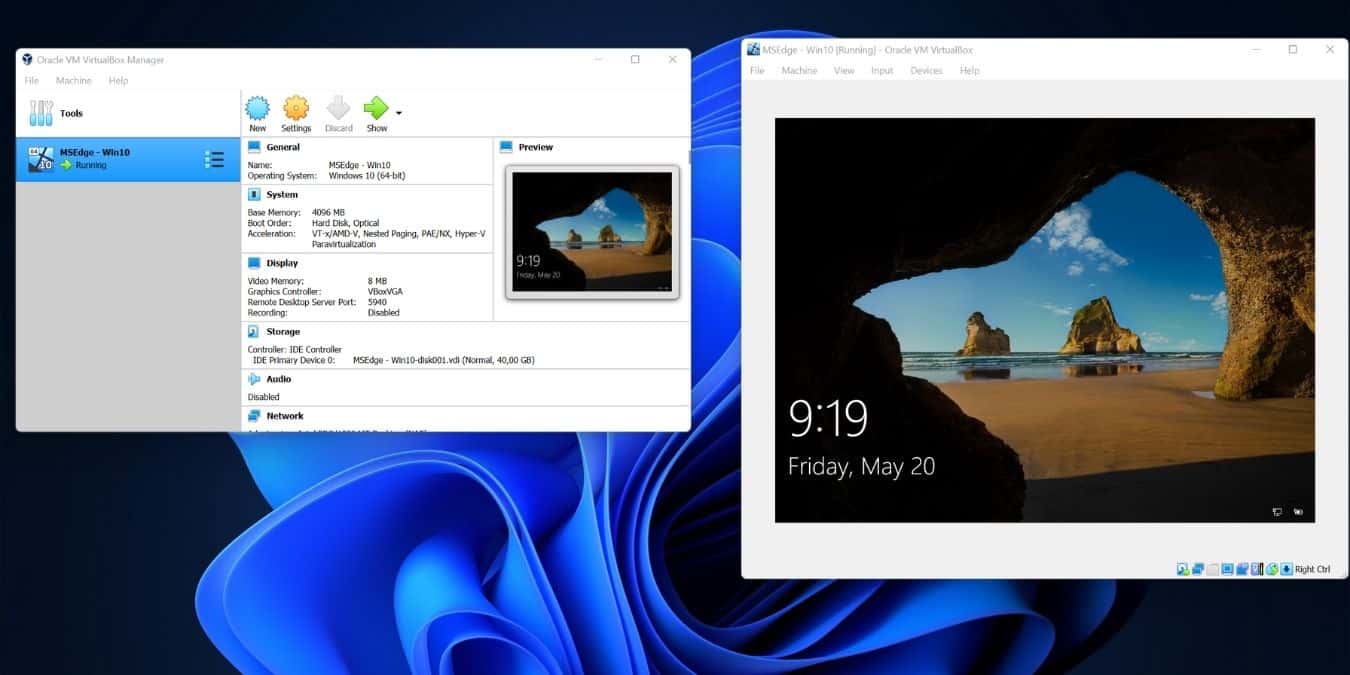In computing, a virtual machine (VM) is the virtualization/emulation of a computer system. Virtual machines are based on computer architectures and provide functionality of a physical computer. Their implementations may involve specialized hardware, software, or a combination.
Virtual machines differ and are organized by their function, shown here:
- System virtual machines (also termed full virtualization VMs) provide a substitute for a real machine. They provide functionality needed to execute entire operating systems. A hypervisor uses native execution to share and manage hardware, allowing for multiple environments which are isolated from one another, yet exist on the same physical machine. Modern hypervisors use hardware-assisted virtualization, virtualization-specific hardware, primarily from the host CPUs.
- Process virtual machines are designed to execute computer programs in a platform-independent environment.
Some virtual machine emulators, such as QEMU and video game console emulators, are designed to also emulate (or “virtually imitate”) different system architectures thus allowing execution of software applications and operating systems written for another CPU or architecture. Operating-system-level virtualization allows the resources of a computer to be partitioned via the kernal. The terms are not universally interchangeable.
How Can We Help With Virtual PC?
We can help install and set up an older version or an extra version of most OS’s on the market and listed below:
- Windows NT 4.0, 2000
- Windows XP
- Windows Server 2003
- Windows Vista
- Windows 7
- Windows 8
- Windows 10
- Windows 11
- DOS/Windows 3.x
- Linux
- Solaris
- OpenSolaris
Still, need help or want to order your Virtual PC?
If you have a question or require any more information please feel FREE to contact us by clicking here. or call into our shop and we will be happy to help!
